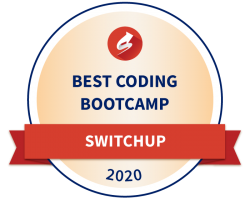Hadoop Training Courses in South Africa

Hadoop Training Courses in South Africa
July 13, 2024 Comments Off on Hadoop Training Courses in South AfricaHadoop Training Courses in South Africa
Apache Courses South Africa
All in all South Africa is a country on the southernmost tip of the African continent, marked by several distinct ecosystems. Inland safari destination Kruger National Park is populated by big game. The Western Cape offers beaches, lush winelands around Stellenbosch and Paarl, craggy cliffs at the Cape of Good Hope, forest and lagoons along the Garden Route, and the city of Cape Town, beneath flat-topped Table Mountain.
- Python, Spark, and Hadoop for Big Data. 20 hours.
- Data Analysis with Hive/HiveQL. 10 hours.
- Datameer for Data Analysts. 10 hours.
- Hadoop Administration. 10 hours.
- Administrator Training for Apache Hadoop. 10 hours.
- Hadoop Administration on MapR. 10 hours.
- Hadoop for Developers. 10 hours.
- Advanced Hadoop for Developers. 2240 hours.
Frequently asked questions about the Apache Hadoop Training Courses in South Africa.
Why Apache Hadoop Courses South Africa?
Overall Apache Hadoop is a collection of open-source software utilities that facilitates using a network of many computers to solve problems involving massive amounts of data and computation. It provides a software framework for distributed storage and processing of big data using the MapReduce programming model.
Part-Time
Fast forward your career in the IT industry with a part-time course at School of IT. In turn Part-time courses allow working professionals to transition into a new skill set while working. Moreover at School of IT we are agile and customize a course to the individual.
Full Time
Ready to start a career in IT? Learn Apache Hadoop as a full time student at School of IT. Thus beginning your career in Artificial Intelligence.
High School
Learn about Apache Hadoop and prepare for the future while you’re still in high school. Thus no matter where you are, we come to you! Thus giving you the analytical skills to pursue your dreams!
Corporate
Learn about Artificial Intelligence (AI) Training in South Africa and up skill yourself or your company while you’re working. Thus no matter where you are, we come to you and give the tools to move up in your company.
Course Objectives.
By the end of the Python, Spark, and Hadoop for Big Data Course, students will have usable knowledge of the following:
- Set up the necessary environment to start processing big data with Spark, Hadoop, and Python.
- Understand the features, core components, and architecture of Spark and Hadoop.
- Learn how to integrate Spark, Hadoop, and Python for big data processing.
- Explore the tools in the Spark ecosystem (Spark MlLib, Spark Streaming, Kafka, Sqoop, Kafka, and Flume).
- Build collaborative filtering recommendation systems similar to Netflix, YouTube, Amazon, Spotify, and Google.
- Use Apache Mahout to scale machine learning algorithms.
Course Objectives.
By the end of the Data Analysis with Hive/HiveQL Course, students will have usable knowledge of the following:
Hive Overview
- Architecture and design
- Aata types
- SQL support in Hive
- Creating Hive tables and querying
- Partitions
- Joins
- Text processing
- labs : various labs on processing data with Hive
DQL (Data Query Language)
-
- SELECT clause
- Column aliases
- Table aliases
- Date types and Date functions
- Group function
- Table joins
- JOIN clause
- UNION operator
- Nested queries
- Correlated subqueries
Course Objectives.
By the end of the HBase for Developers Course, students will have usable knowledge of the following:
- Section 1: Introduction to Big Data & NoSQL
- Big Data ecosystem
- NoSQL overview
- CAP theorem
- When is NoSQL appropriate
- Columnar storage
- HBase and NoSQL
- Section 2 : HBase Intro
- Concepts and Design
- Architecture (HMaster and Region Server)
- Data integrity
- HBase ecosystem
- Lab : Exploring HBase
- Section 3 : HBase Data model
- Namespaces, Tables and Regions
- Rows, columns, column families, versions
- HBase Shell and Admin commands
- Lab : HBase Shell
- Section 3 : Accessing HBase using Java API
- Introduction to Java API
- Read / Write path
- Time Series data
- Scans
- Map Reduce
- Filters
- Counters
- Co-processors
- Labs (multiple) : Using HBase Java API to implement time series , Map Reduce, Filters and counters.
- Section 4 : HBase schema Design : Group session
- students are presented with real world use cases
- students work in groups to come up with design solutions
- discuss / critique and learn from multiple designs
- Labs : implement a scenario in HBase
- Section 5 : HBase Internals
- Understanding HBase under the hood
- Memfile / HFile / WAL
- HDFS storage
- Compactions
- Splits
- Bloom Filters
- Caches
- Diagnostics
- Section 6 : HBase installation and configuration
- hardware selection
- install methods
- common configurations
- Lab : installing HBase
- Section 7 : HBase eco-system
- developing applications using HBase
- interacting with other Hadoop stack (MapReduce, Pig, Hive)
- frameworks around HBase
- advanced concepts (co-processors)
- Labs : writing HBase applications
- Section 8 : Monitoring And Best Practices
- monitoring tools and practices
- optimizing HBase
- HBase in the cloud
- real world use cases of HBase
- Labs : checking HBase vitals
Course Objectives.
By the end of the Hadoop Administration on MapR Course, students will have usable knowledge of the following:
Big Data Overview:
- What is Big Data
- Why Big Data is gaining popularity
- Big Data Case Studies
- Big Data Characteristics
- Solutions to work on Big Data.
Hadoop & Its components:
- What is Hadoop and what are its components.
- Hadoop Architecture and its characteristics of Data it can handle /Process.
- Brief on Hadoop History, companies using it and why they have started using it.
- Hadoop Frame work & its components- explained in detail.
- What is HDFS and Reads -Writes to Hadoop Distributed File System.
- How to Setup Hadoop Cluster in different modes- Stand- alone/Pseudo/Multi Node cluster.
(This includes setting up a Hadoop cluster in VirtualBox/KVM/VMware, Network configurations that need to be carefully looked into, running Hadoop Daemons and testing the cluster).
- What is Map Reduce frame work and how it works.
- Running Map Reduce jobs on Hadoop cluster.
- Understanding Replication , Mirroring and Rack awareness in context of Hadoop clusters.
Hadoop Cluster Planning:
- How to plan your hadoop cluster.
- Understanding hardware-software to plan your hadoop cluster.
- Understanding workloads and planning cluster to avoid failures and perform optimum.
What is MapR and why MapR :
- Overview of MapR and its architecture.
- Understanding & working of MapR Control System, MapR Volumes , snapshots & Mirrors.
- Planning a cluster in context of MapR.
- Comparison of MapR with other distributions and Apache Hadoop.
- MapR installation and cluster deployment.
Cluster Setup & Administration:
- Managing services, nodes ,snapshots, mirror volumes and remote clusters.
- Understanding and managing Nodes.
- Understanding of Hadoop components, Installing Hadoop components alongside MapR Services.
- Accessing Data on cluster including via NFS Managing services & nodes.
- Managing data by using volumes, managing users and groups, managing & assigning roles to nodes, commissioning decommissioning of nodes, cluster administration and performance monitoring, configuring/ analyzing and monitoring metrics to monitor performance, configuring and administering MapR security.
- Understanding and working with M7- Native storage for MapR tables.
- Cluster configuration and tuning for optimum performance.
Cluster upgrade and integration with other setups:
-
- Upgrading software version of MapR and types of upgrade.
- Configuring Mapr cluster to access HDFS cluster.
- Setting up MapR cluster on Amazon Elastic Mapreduce.
Course Objectives.
By the end of the Datameer for Data Analysts Training Course, students will have usable knowledge of the following:
- Create, curate, and interactively explore an enterprise data lake.
- Access business intelligence data warehouses, transactional databases and other analytic stores.
- Use a spreadsheet user-interface to design end-to-end data processing pipelines.
- Access pre-built functions to explore complex data relationships.
- Use drag-and-drop wizards to visualize data and create dashboards.
- Use tables, charts, graphs, and maps to analyze query results.
The career prospects for AI Courses South Africa is high in demand. Artificial Intelligence is everywhere: on all platforms and devices and in all countries around the world!
- All in all Apache Architect
- Cloud Developer.
- Data Analyst.
- Furthermore a Data Scientist.
- Become a Cloud DevOps Engineer.
- Thus become a Azure Software Engineer.
- Networking Specialist.




